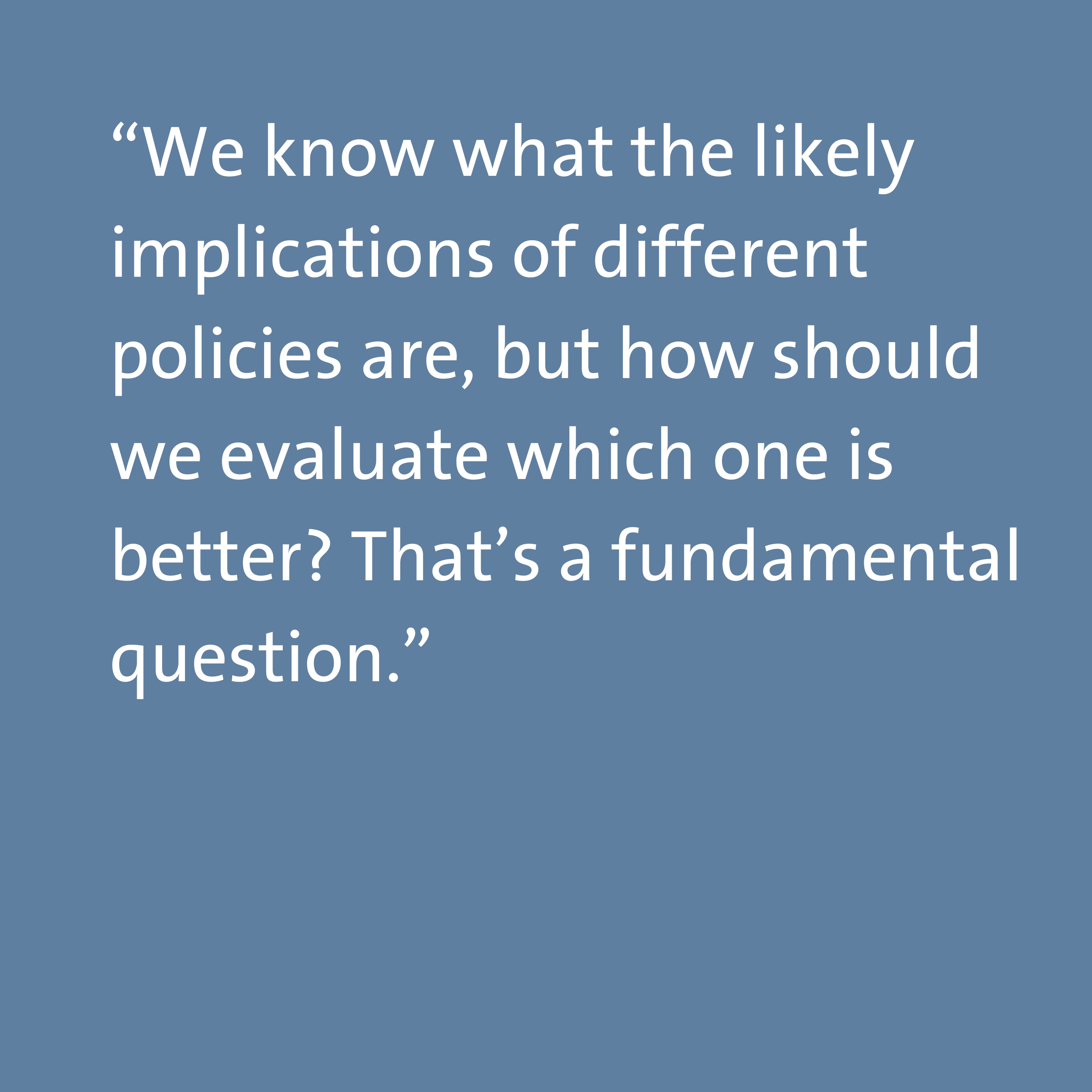How much inequality should a society tolerate?
Maya Eden, professor of economics at our department and affiliated professor at the UBS Center, delivered her inaugural lecture entitled "The Good".
(47).jpg)
Should groceries remain affordable even if it means underpaying the people who stock the shelves? Should access to global markets justify job losses in struggling regions? And how much should a society be willing to give up, economically, to ensure a fairer distribution of income? These kinds of questions lie at the heart of major policy decisions. Again and again, societies are forced to weigh economic efficiency against fairness. But what makes one outcome better than another – and who gets to decide? These are the kinds of questions that drive the research of Maya Eden.
In her inaugural lecture at the University of Zurich, Maya Eden proposed an elegant and rigorous approach to these thorny questions. Rather than treating such dilemmas as matters of subjective values or political ideology, she argues that we can reason our way toward ethical clarity – starting from basic principles most of us already agree on. Her research, situated at the intersection of economics and ethics, provides a compelling framework for evaluating policy decisions ranging from wage setting to trade agreements, redistribution, and beyond.

Eden begins with an accessible but far-reaching example: the minimum wage. A low minimum wage tends to keep the prices of services affordable, but it also results in higher income inequality. A higher minimum wage reduces inequality but raises prices. Economists can model these trade-offs in great detail, predicting how changes in policy affect prices, employment, and the distribution of income. But once the outcomes are clear, a different kind of question emerges: which outcome is ethically better?
Two principles, one ethical ranking
This is where Eden’s work breaks new ground. Together with Luis Mota Freitas, she explores whether ethical preferences can be derived not from personal ideology, but from shared moral intuitions. Two such principles form the backbone of her approach. The first is the Pareto principle: if a policy makes everyone better off, it must be preferable. The second is the equal treatment principle: every person’s well-being should count equally in the evaluation of outcomes. On their own, these axioms seem uncontroversial and even banal. But when combined, they yield a surprisingly precise conclusion: they often allow for only one possible way of ethically ranking economic outcomes.
This ranking, as Eden shows, implies a moderate but significant aversion to inequality. Societies that adhere to these two ethical principles would, for example, prefer a perfectly equal income distribution of 50 per person over a more unequal one where one person receives 25 and another 100 – even though the total income in the latter case is higher. In other words, they would be willing to sacrifice some economic output for the sake of fairness.

A general framework for policy evaluation
What makes Eden’s framework so powerful is its generality. The same logic that applies to minimum wage debates also extends to other key policy areas. Trade agreements, for instance, change both the prices of goods and the distribution of income across regions and industries. Redistribution via taxation or social transfers similarly hinges on how much inequality a society is willing to tolerate. Eden’s approach equips policymakers with a principled way to assess these trade-offs – one that is grounded in ethical reasoning rather than political bargaining.
However, her framework also reveals its own limits when applied to the most complex policy domains. In questions of climate change, immigration, or fertility, it becomes much harder to define who counts as part of the ethical calculus. Should we include future generations, non-residents, or even unborn individuals? Eden acknowledges that her current model cannot yet capture these layers of complexity, but she sees this as an opportunity rather than a failure. Her work, she suggests, offers a proof of concept: shared ethical principles can meaningfully inform economic reasoning. With further development, this approach may help bring clarity even to the most divisive policy challenges.
A new way to talk about fairness in economics
What sets Eden’s research apart is its insistence that we do not have to choose between rigorous economic analysis and ethical reflection. On the contrary, she shows that mathematical reasoning can be a tool for uncovering common ground – even in a polarized world. In an era where economic debates are often dominated by ideology and power politics, her work offers a refreshing alternative: a return to reason, built on principles we already share.
Maya Eden joined the Department of Economics at the University of Zurich as Professor of Economics in June 2024 and is an Affiliated Professor at the UBS Center. Her research spans a broad spectrum of issues in welfare economics, macroeconomics and the normative analysis of economic policy.
Watch the full inaugural lecture here
To her website.
Maura Wyler-Zerboni (Text) & Christopher Shenton (Image)